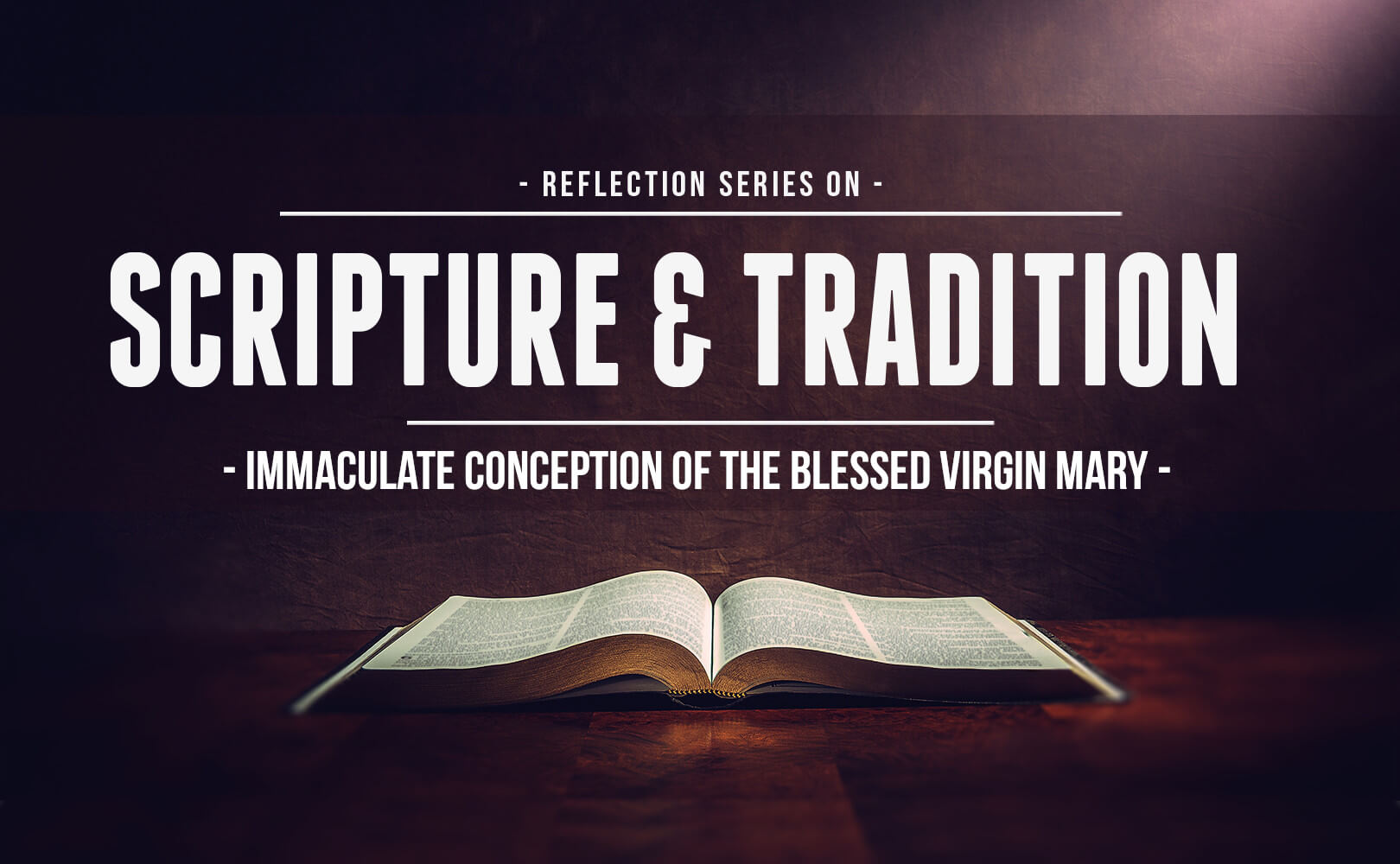Epistle: Proverbs 8:22-35
Gospel: Luke 1:26-28
O God, Who by the Immaculate Conception of the Virgin, prepared a worthy dwelling for Your Son, and Who, by Your Son’s death, foreseen by You, preserved her from all taint, grant, we beseech You, through her intercession, that we too may come to You unstained by sin.
– From the Collect for the Immaculate Conception of the Blessed Virgin Mary
This Sunday would normally be the 2nd Sunday of Advent, but this year that celebration is reduced to a commemoration and instead we celebrate the Immaculate Conception of the Blessed Virgin Mary.
The Feast of the Immaculate Conception of the Blessed Virgin Mary is one of the great Church feasts of the year. It celebrates the fact that Mary, “in the first instance of her conception, by a singular grace and privilege granted by Almighty God, in view of the merits of Jesus Christ, the Savior of the human race, was preserved free from all stain of original sin” (Pope Pius IX, Ineffabilis Deus). The various prayers and readings for the feast are rich in meaning.
In the Gradual of the Mass, the Church praises Mary in these words:
Blessed are you, O Virgin Mary, by the Lord the most high God, above all women upon the earth.
You are the glory of Jerusalem, you are the joy of Israel, you are the honor of our people.
Both of these lines come from the Biblical book of Judith, and both originally referred to that Old Testament heroine. The story of Judith (which is not found in Protestant Bibles) has some amazing parallels to the Blessed Virgin Mary.
During the time of Judith, the Assyrian General Holofernes was conquering the nations bordering Israel for Nebuchadnezzar. Holofernes forced these conquered peoples to worship Nebuchadnezzar as god. When he turned his gaze on Israel, there was little hope that the Chosen People would be able to resist Holofernes’s army. Enter Judith.
A beautiful widow, Judith went to Israel’s leaders to tell them to hold off capitulating to Holofernes until she took care of the situation. Judith then deceives Holofernes into thinking she will sleep with him, gets him drunk, and after he passes out, beheads him with his own sword. In response to this beheading, Ozias, prince of the people of Israel, exclaims the words found in the Gradual, “Blessed art thou, O daughter, by the Lord the most high God, above all women upon the earth” (Judith 13:23).
Like Judith, the Blessed Virgin Mary crushes the head of an enemy who wishes to turn her people away from God. But instead of an Assyrian General, Mary crushes the head of Satan, as God foretold at the beginning of creation: “I will put enmities between thee and the woman, and thy seed and her seed: she shall crush thy head, and thou shalt lie in wait for her heel” (Genesis 3:15). The Immaculate Conception is the foundation of this “crushing”, for when we sin, we fall under the dominion of Satan, but when we resist the pull of sin, we fight against him. Mary, by virtue of her Immaculate Conception, resisted sin so completely that it led to the downfall of the devil.
Judith’s Song of Thanksgiving (Judith 16:2-17) further points to fulfillment in the Blessed Virgin Mary and strikes a cord similar to Mary’s Magnificat: praising God for lifting up a lowly servant to bring about salvation. Judith exclaims,
Begin a song to my God with tambourines,
sing to my Lord with cymbals.
Raise to him a new psalm;
exalt him, and call upon his name.
For God is the Lord who crushes wars;
for he has delivered me out of the hands of my pursuers,
and brought me to his camp, in the midst of the people.
But the Lord Almighty has foiled them
by the hand of a woman…
For their mighty one did not fall by the hands of the young men,
nor did the sons of the Titans smite him,
nor did tall giants set upon him;
but Judith the daughter of Merari undid him
with the beauty of her countenance. (Judith 16:1-3, 7)
As St. James wrote, “God opposes the proud, but gives grace to the humble” (James 4:6). No one in history has more cause to boast than the Blessed Virgin Mary, yet no one in history is more humble, acknowledging that all her great gifts come from God. In the Immaculate Conception, we see the foundation of those great gifts, and how through Mary and her seed, the Great Serpent’s head would be crushed.


